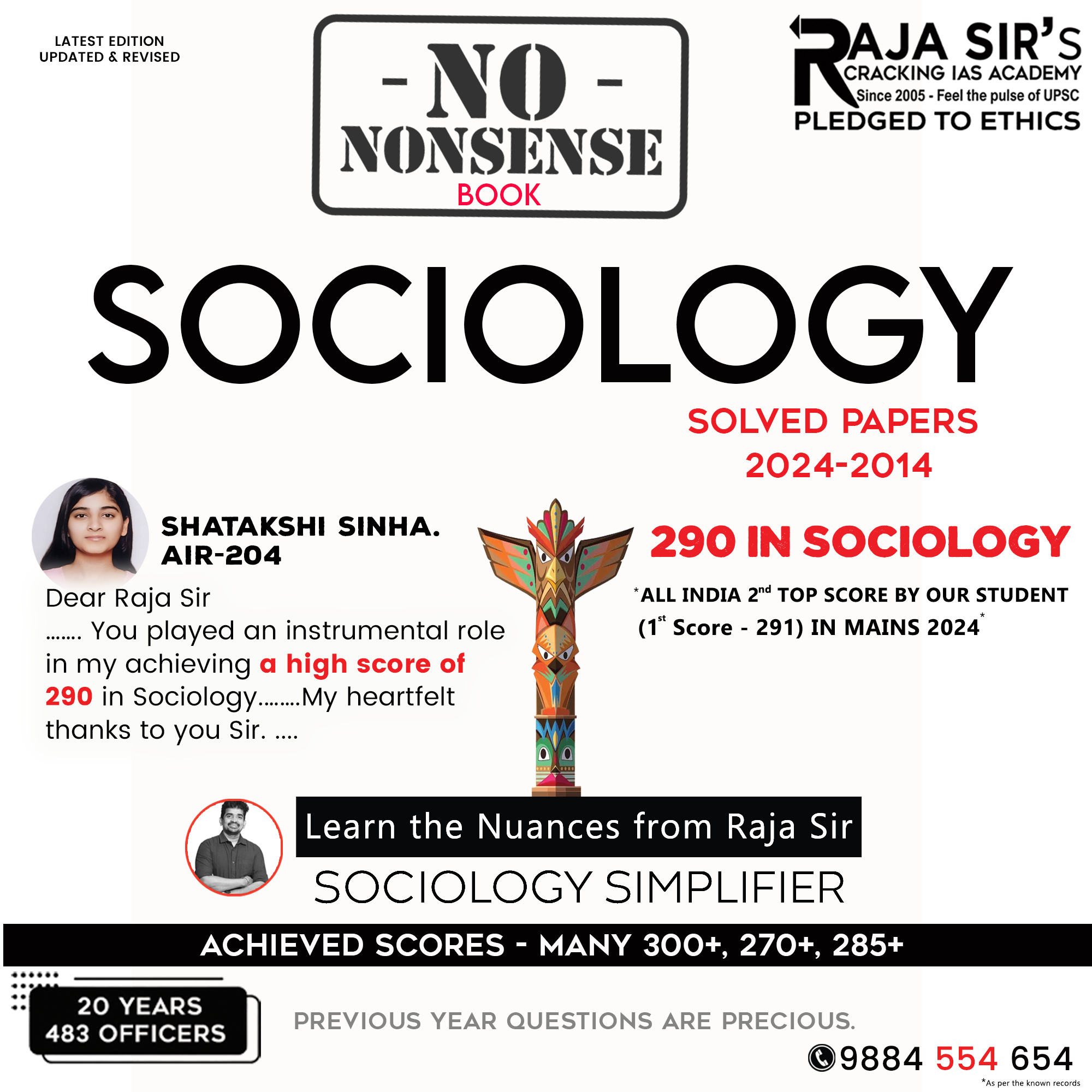- Home
- Prelims
- Mains
- Current Affairs
- Study Materials
- Test Series
 Latest News
Latest News
Define Critical Social Research. Examine its key methodological features and its relevance in understanding power and inequality in society. [Sociology - Mains Daily Answer writing Practice (15 Marks) - Paper 1]

Critical Social Research (CSR) is a methodological approach rooted in critical theory, particularly the Frankfurt School, that seeks to uncover and challenge the structures of power, domination, and inequality in society. Unlike positivist approaches that emphasize objectivity and neutrality, CSR is normative, reflexive, and transformative, aiming not just to understand society but to change it.
It is influenced by Marxist, feminist, and postmodern perspectives and emphasizes the emancipation of marginalized groups through the critique of dominant ideologies and institutions.
|
Thinkers associated with CSR |
|
|
Max Horkheimer |
Coined the term critical theory; emphasized critique of capitalist society. |
|
Herbert Marcuse |
Advocated for radical social change; linked Marxism with psychoanalysis. |
|
Jürgen Habermas |
Developed theory of communicative action; emphasized rational discourse and democracy. |
|
Antonio Gramsci |
Introduced concept of cultural hegemony; showed how ideology maintains power. |
|
Michel Foucault |
Explored power/knowledge nexus; studied institutions like prisons, hospitals. |
Methodological Features of Critical Social Research
Ideology Critique
-
- CSR investigates how dominant ideologies legitimize social inequalities.
- It exposes how media, education, and culture reinforce the status quo.
Historical Contextualization
-
- Social phenomena are analyzed within their historical and structural contexts.
- This helps reveal how past events shape present power dynamics.
Reflexivity
-
- Researchers critically examine their own biases and positionality.
- The process of knowledge production itself is scrutinized.
Emancipatory Intent
-
- CSR aims to empower oppressed groups and promote social justice.
- Research is a tool for social transformation, not just academic inquiry.
Praxis
-
- Combines theory with action.
- Encourages active engagement with social movements and policy change.
Subjectivity and Contextualization
-
- Rejects the idea of universal objectivity.
- Emphasizes context-specific understanding of social realities.
Deconstruction of Power Structures
-
- Analyzes how institutions (state, law, economy, religion) perpetuate inequality.
- Uses tools like Critical Discourse Analysis to reveal hidden meanings in texts and practices.
Relevance in Understanding Power and Inequality
Critical Social Research is vital for:
- Uncovering hidden mechanisms of oppression (e.g., caste, patriarchy, capitalism).
- Challenging dominant narratives that normalize inequality.
- Empowering marginalized voices through participatory and inclusive research.
- Informing policy and activism by linking academic insights to real-world change.
For example, CSR has been used to:
- Analyze gender bias in education.
- Critique media representations of caste and class.
- Examine state policies through the lens of social justice.
Critical Social Research offers a powerful lens to interrogate the deep-rooted structures of power and inequality in society. By combining rigorous analysis with a commitment to social change, it transforms sociology from a descriptive science into a tool for emancipation and justice.












 General Studies
General Studies